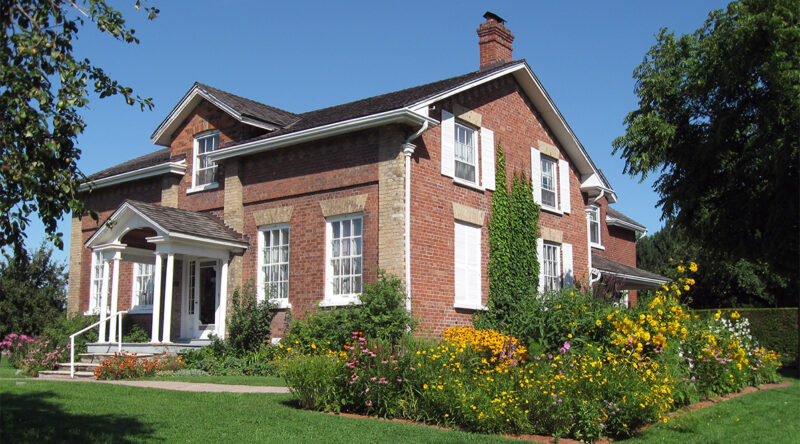The Applewood Shaver farmhouse in Etobicoke, Ont. will be home to Jaymes White’s séance from Oct. 1 to Nov. 27, and marks his first in-person show since the beginning of the pandemic.
COVID-19 has provided an opportunity for the team to pivot from their more traditional Victorian séances to other means of spirit communication.
Shimenawa is an example of their pivot. Séance attendees will hold onto a thick rope made from hemp instead of holding hands in a circle for table rappings.
“The question when you’re doing a séance, you never want it to be subpar,” White said, during a September phone call. “We were going through everything and we realized that if we’re following all the COVID rules, it’s going to be at the same level, just a little different.
“If we decide to use the Ouija board, then it’s only going to be the same people in the bubble who will be using it, instead of having random people together.”
This year’s choice for the location came from Jaymes White’s team’s proximity to the Applewood Shaver farmhouse, as well as the importance the homestead plays in Canadian political history.
Completed in 1852, the Shaver farmhouse was home to Peter and Esther Shaver. In 1874, the homestead’s most famous resident was born. James Shaver Woodsworth, one of the founding members of the Co-operative Commonwealth Federation — the beginnings of the modern New Democratic Party — was born to Peter Shaver’s daughter, Esther Josephine and James Woodsworth.
The family would eventually move to Winnipeg, Man. where J.S. Woodsworth would become known as a labour activist and led the campaign against the police in the aftermath of the Winnipeg General Strike in 1919.
David Young, the president of the James Shaver Woodsworth Homestead Foundation, said the house was saved from demolition thanks to the efforts of alderman and Methodist minister Reverend Stewart East in 1980.
“The house was moved to its current location, about 300 metres across the road,” he said. “It used to be at the corner of Burnhamthorpe and West Mall. The house would have been bulldozed if it wasn’t for some famous council members.”
The Applewood Shaver farmhouse sits where the family apple orchard was when it was originally built. The neighbourhood was named Eatonville after Peter and his son George sold their land to the Eaton company, who would help raise horses and build dairy farms there.
There are no supernatural occurrences that Young can think of at the house, but the history within its walls allows for plenty of stories.
“I think it’s valuable to preserve examples of the original foundations or beginnings of Etobicoke, and the Shaver house was certainly involved in that,” Young said.
White said he was thrilled by Young’s knowledge of the location, as well as the plethora of artifacts provided by descendants of the Shaver-Woodsworth lineage.
“He was a perfect encyclopedia for any answers that we need; just finding out the history of all the items,” White said, adding his show will feature four artifacts that belonged to the family.
Isabelle Shaver Bishop was the last member of the family to live in the farmhouse at Burnhamthorpe Road and The West Mall. She left the house just before its move across to Broadacres Park.
In previous years, Toronto’s Campbell House and the former Beverley Street residence of George Brown were used as séance locations.
White is mum about the stories he’ll be sharing during the séances but is hoping the event will remove people’s worries about the pandemic from their minds.
“I’m hoping to give people a special experience where they can just leave the COVID life, or what’s going on in this world for two hours,” he said. “Get away from COVID and just experience it.”
White is committed to all government laws and bylaws for all mandatory COVID-19 protocols. Face coverings will be mandatory, physical distancing between bubbles using spacers and markers, cleaning in between sessions, hand sanitizer, as well as smaller group sizes of 13 to 16 people.
Tickets are available through his website.
Photo courtesy David Young

